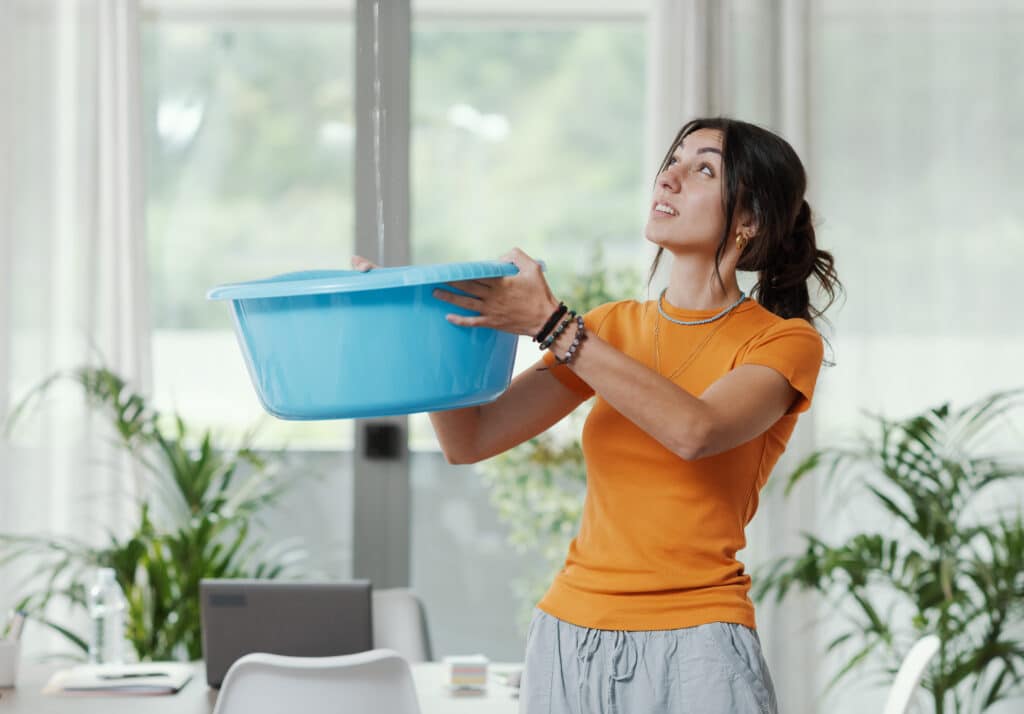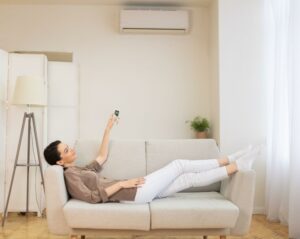When it comes to surviving the hot summer months or cold winter months, a reverse cycle ducted cooling system can be a lifesaver. They help to keep our homes comfortable and breathable – even on the hottest or coldest days.
However, just like any other home appliance, ducted cooling systems are not immune to problems. From blocked ducts to leaking pipes, these issues can happen at any time and can have you sweating (or freezing) up a storm. That’s why it’s important to know the signs of trouble with your reverse cycle ducted cooling system so that you can take action before it’s too late.

5 Common Signs of Trouble in Reverse Cycle Ducted Cooling Systems
1. Unusual sound and smells.
One of the first signs of trouble with your ducted cooling system is unusual sounds or smells. If you notice any unusual noises such as hissing, rattling or clanging, it could indicate that there is a problem with the fan or motor. Similarly, if you smell any strange smells, such as burning or musty odours, it could indicate that the duct system is dirty, clogged or has a mould or mildew problem.
Some smells in your ducted air conditioning may not just be impacting your heating or cooling, but also your health. If you’re hearing or smelling anything out of the ordinary, give our team at Hyde Heating & Cooling a call as soon as possible to get it sorted.
2. Uneven airflow.
Have you noticed some rooms in your home are cooler or warmer than others? Or maybe there is no airflow coming from certain vents? This could be due to problems like blocked ducts or closed dampers. In some cases, you may need to have your ducted cooling system serviced or repaired to fix the problem.
It’s easy to fall behind on ducted cooling system maintenance, but letting it get too far can cause you more hassle than those annual or bi-annual cleans and servicing.
Ensuring you’re staying up to date with your ducted cooling system’s maintenance can help you avoid breakdowns or inconsistent heating and cooling, particularly in the height of summer or winter.
3. Leaking water.
Water leaks around your ducted cooling system can indicate blocked condensate drains or other issues within the system. If left untreated, water leaks can lead to mould or structural damage – especially if the problem persists for an extended period. If you notice any water leaks, it’s important to contact our ducted cooling experts to investigate and resolve the issue.
You may not necessarily see a leak, but you may hear dripping when your home or office is quiet. If you hear a leak and can’t find one, you should get onto it ASAP.

4. Higher energy bills.
Have you noticed that your energy bills are higher than usual? This could be due to a variety of common signs of problems with your ducted reverse cycle cooling system, such as a dirty air filter, clogged duct system or failing parts.
If you’re not noticing any other problems with your heating or cooling, you may wish to have an electrician visit your home to check if it is your ducted AC causing your issues and another electrical problem. However, if your air conditioning has been on the fritz, give us a call and we’ll get you back to those better energy prices!
5. System malfunction.
A complete system malfunction is one of the most obvious signs something is wrong with your ducted cooling system. If your system fails completely, your home temperature is likely to rise drastically, and you may need to call in a professional to conduct repairs. System malfunctions can be caused by a range of issues, including electrical problems, broken parts or blocked ducts.
So many AC system failures could be avoided with regular maintenance, such as cleaning. If it’s been more than 12 months since your last professional clean or service, you’re overdue.
Frequently Asked Questions About Reverse Cycle Ducted Cooling Systems
Can leaks cause problems with a reverse cycle air conditioning?
Yes, leaks can cause problems with a reverse cycle ducted air conditioning system. Water leakage is a common problem with air conditioning systems, and during heating operation, the outdoor unit of a reverse cycle air conditioning system will actually cool, and the outdoor coil will become quite cold. Due to low outdoor temperatures, the temperature of the outdoor unit coil will drop below the dew point temperature outside. As the outdoor unit coil drops in temperature and the dew point temperature is reached, water is pulled from the air and condenses on the coil itself. This water runs down the coil and pools in the bottom of the unit.
Most air conditioning units will have small holes in the base plate, which allows water to leave the bottom of the unit, preventing rust formation and flooding. If the unit has no drain connected, this water will just drip onto the ground and pool around the unit.
What are some signs it’s time to replace your ducted air conditioner?
Some signs it’s time to replace your ducted air conditioner include:
Your ducted air conditioner is more than ten years old.
Your ducted air conditioner frequently breaks down.
Your ducted air conditioner is blowing warm air.
Little air blows out of vents.
Loud noise inside of the AC unit.
Your ducted air conditioner is not responding well to the thermostat.
You find yourself calling the technician often.
Your ducted air conditioner is not cooling your home evenly.
If you think it’s nearly time to replace your air conditioner, give your local air con technician at Hyde Heating & Cooling for an inspection and replacement quote.
Why is my reverse cycle ducted AC not heating properly?
There are many reasons why your reverse cycle ducted AC may not be heating properly, including:
A malfunctioning compressor, which is the part of your AC that changes the refrigerant from a gas to a liquid and back again to provide heating.
A faulty reversing valve, which is the AC part responsible for switching the refrigerant flow direction from heating and cooling.
Ice build-up on the outdoor unit (depending on where you live).
Your settings are incorrect. Ensure your thermostat is set to the correct temperature and the fan is set to auto.
Your filters are dirty, which can restrict airflow and cause your AC to not heat properly.
You may have a leak.
If you’re experiencing any of these issues, give our Mornington Peninsula heating and cooling experts a call.





